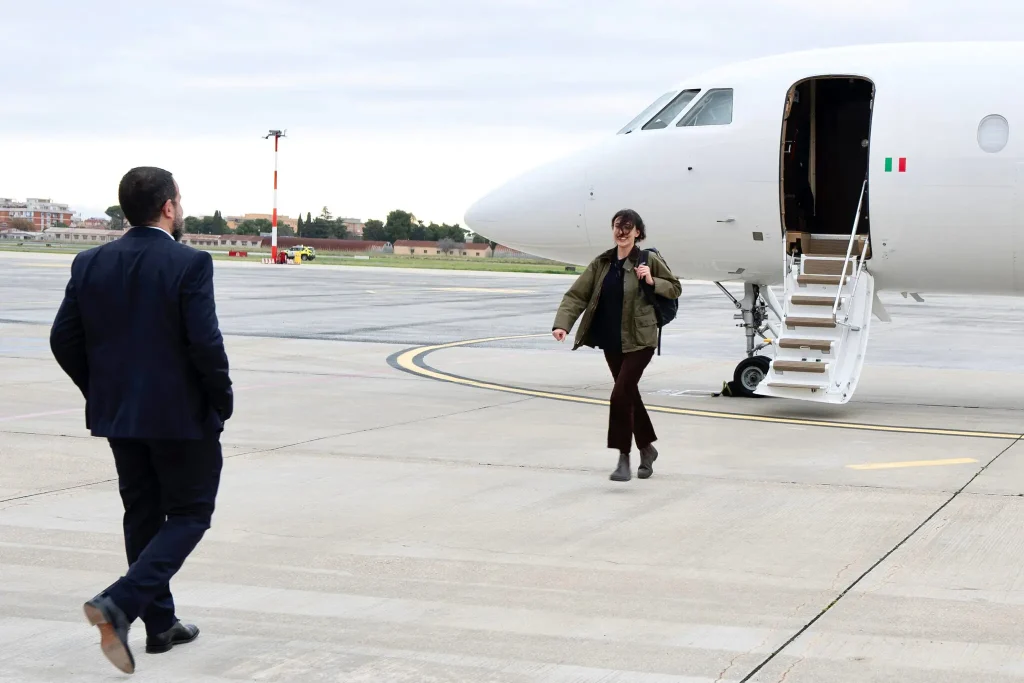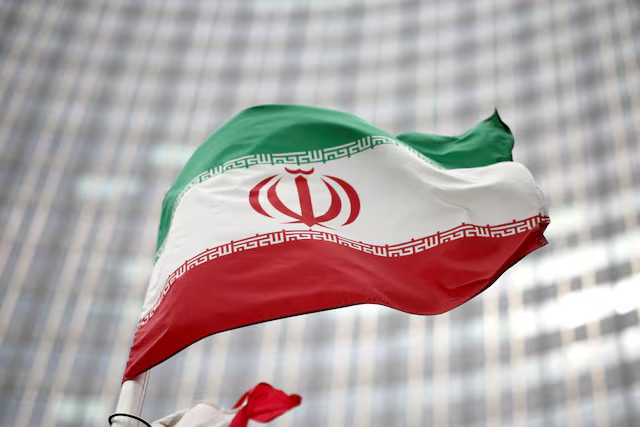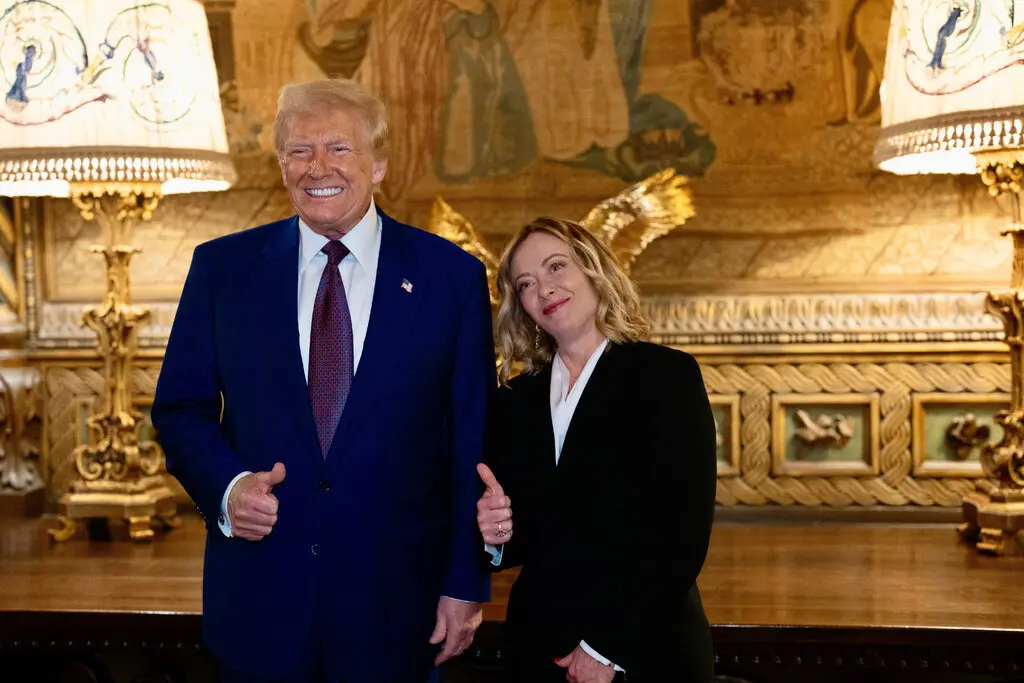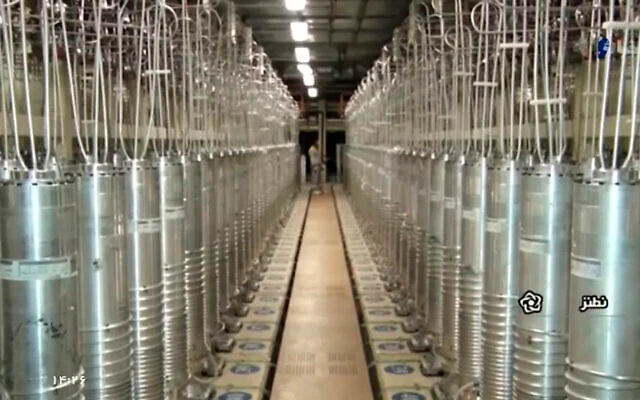Italy Says Cecilia Sala, Journalist Detained by Iran, Has Been Released

Italy has announced that Cecilia Sala, an Italian journalist detained in Iran, has been released, marking a significant development in a case that has drawn widespread international attention. Sala, a well-known reporter with experience covering Middle Eastern affairs, had been arrested by Iranian authorities under charges that have yet to be fully disclosed. Her detention had sparked a diplomatic crisis, with the Italian government, as well as human rights organizations, calling for her immediate release and condemning Iran’s actions.
The news of her release comes after several weeks of negotiations and diplomatic efforts. Italian officials had been in close communication with Iranian authorities to secure her freedom, working behind the scenes to resolve the situation. Sala’s arrest had come at a time when relations between Iran and many Western countries, including Italy, were already strained, further complicating the efforts to secure her release. Despite the tense political climate, Italy’s Ministry of Foreign Affairs had been relentless in its pursuit of her freedom, emphasizing the importance of protecting journalists and ensuring their safety, particularly in volatile regions.
The details surrounding Cecilia Sala’s arrest remain unclear. Iranian authorities initially offered little information about the reasons for her detention, leading to speculation about the possible motivations behind her arrest. Some analysts believe that the charges may have been politically motivated, as Iran has a history of detaining foreign nationals, especially journalists, as part of its broader strategy to control the narrative and limit foreign influence in the country. The Iranian government has been known to target journalists, particularly those reporting on sensitive topics such as political dissent, human rights violations, and Iran’s nuclear program.
Sala’s detention had raised alarm bells across the international journalism community. Her colleagues, as well as media organizations worldwide, rallied for her release, highlighting the dangers faced by journalists working in regions with restrictive governments. The arrest of journalists like Sala underscores the increasing risks faced by those covering conflicts and sensitive political issues in countries like Iran, where freedom of the press is severely limited, and dissenting voices are often silenced.
In response to the arrest, Italian officials, led by Prime Minister Giorgia Meloni, had made repeated calls for Sala’s immediate release, framing her detention as a violation of press freedom and human rights. The Italian government had also emphasized that it would continue to press Iran for an explanation regarding her arrest, as well as assurances that she would not face any harm during her detention. In a statement following the announcement of her release, Prime Minister Meloni expressed relief and gratitude, acknowledging the tireless efforts of Italy’s diplomats and the support from the international community that helped bring Sala home.
While Cecilia Sala’s release is a positive outcome, it also raises important questions about the treatment of journalists in authoritarian regimes. Iran, in particular, has faced widespread criticism for its crackdown on press freedoms. Many journalists, both domestic and foreign, have been detained, harassed, or imprisoned for simply doing their jobs. The country has a long track record of stifling independent journalism, and reporters often face surveillance, censorship, and imprisonment. In the case of Cecilia Sala, her arrest serves as a reminder of the risks journalists face when reporting from conflict zones or politically sensitive regions.
Sala’s case also highlights the broader issues of human rights in Iran, where numerous activists, political dissidents, and journalists have been detained in recent years. Despite some international pressure, the Iranian government has shown little willingness to improve its human rights record or to allow greater freedom of the press. As the international community continues to scrutinize Iran’s human rights practices, the release of Sala could serve as a rare glimmer of hope, signaling that diplomatic efforts and international pressure can lead to positive outcomes.
Cecilia Sala is widely respected for her reporting, especially on issues related to the Middle East and Iran. Her coverage has focused on the political and social dynamics of the region, as well as the challenges faced by individuals living under oppressive regimes. Her work has been featured in numerous prestigious outlets, and her arrest has drawn widespread support from fellow journalists and human rights advocates. Following her release, there is hope that Sala will continue her important work and shed light on the complexities of the region.
In conclusion, Cecilia Sala’s release from detention in Iran marks a significant victory for press freedom and diplomacy. While the details of her arrest remain murky, the international community’s response to her detainment serves as a reminder of the risks faced by journalists operating in politically repressive environments. The case underscores the importance of protecting journalists and ensuring their ability to report freely, especially in countries where media freedoms are under constant threat. As Cecilia Sala returns home, her case is a stark reminder of the ongoing challenges faced by journalists in authoritarian regimes and the need for continued global advocacy for press freedom.






